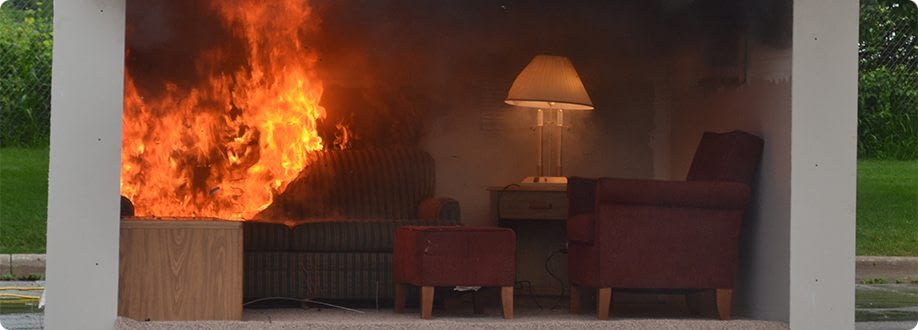

Other noted fire catalysts included natural causes (6 percent), heating systems (6 percent), smoking (5 percent), and cooking (5 percent).
Fires are costly for homeowners
According to the Electrical Safety Foundation International (ESFI), home electrical fires account for an estimated 51,000 fires each year — resulting in nearly 500 deaths, more than 1,400 injuries, and $1.3 billion in property damages.
Placing combustibles too close to a heat source was the second leading cause of determined fires. The culprits can range from pizza boxes left on stoves to blankets thrown over heaters. You can’t always prevent dumb mistakes, but there are some common sense things you can do to mitigate the damage if a fire does start.
Smoke alarms: The National Fire Protection Association (NFPA) reports that three out of five home fire deaths for the period of 2009 through 2013 (the most recent data) were caused by fires in homes with no smoke alarms or no working smoke alarms. Installing smoke alarms on every floor in your home and testing the battery at least once a month is an easy, inexpensive way to protect your family.
Sprinkler systems: It may seem like something just for schools and office buildings, but residential sprinkler installation can go a long way in preventing the spread of a fire. The Special Investigations team at Grinnell Mutual does burn cell demonstrations every year that show how fire acts in a room with sprinklers and a room without.
The difference is jaw-dropping. A fire in a room with sprinklers reaches an average temperature of 160 F; the damage is contained and minimal. A room without sprinklers? Temperatures reach about 2,000 F and the room is destroyed. (Watch a gif that compares photos of the two rooms.)
For more information
Sometimes fires aren’t accidental. Grinnell Mutual’s Fraud and Arson Award program offers up to $10,000 for information about fraudulent or criminal losses to people or property insured with Grinnell Mutual.
You can also read more about fire safety and prevention on Grinnell Mutual’s Front Porch.
Filed Under: Blog, Homeowners Insurance | Tagged With: fire safety, homeowners insurance
